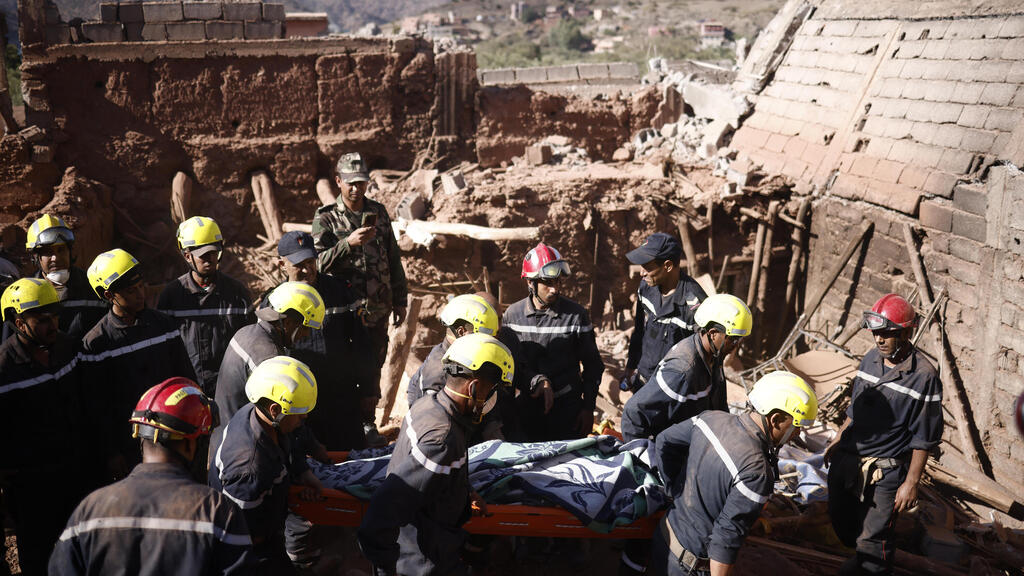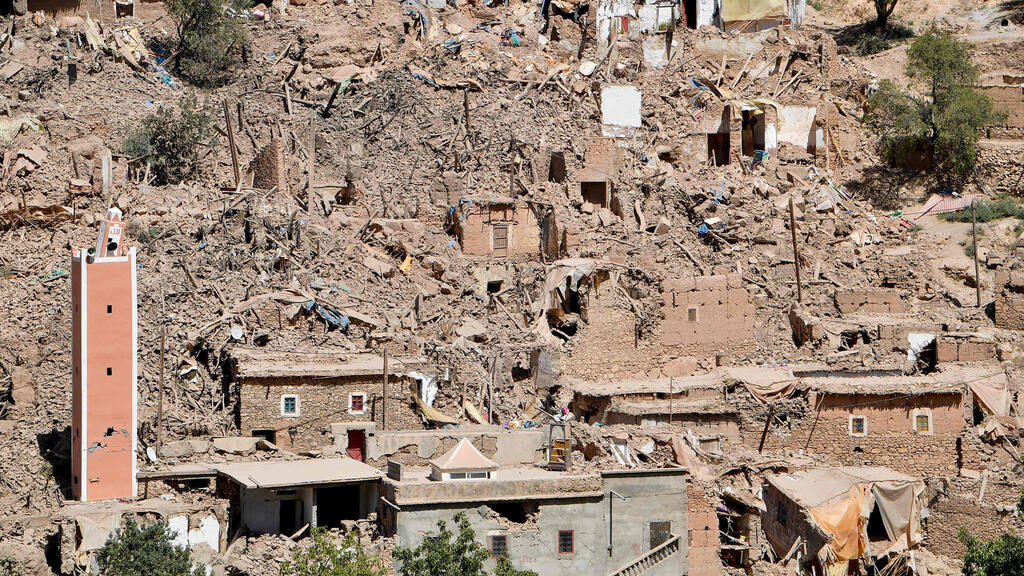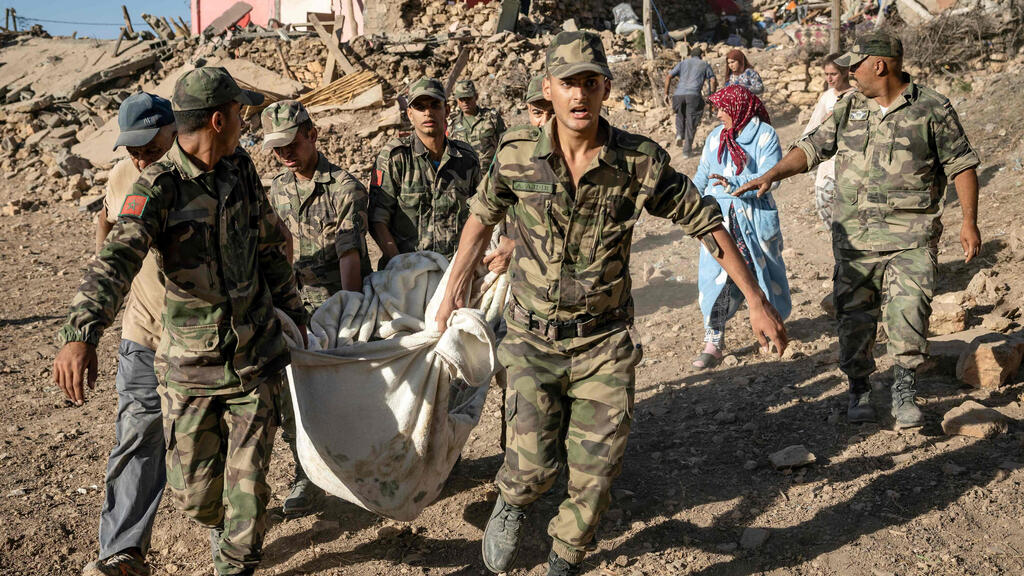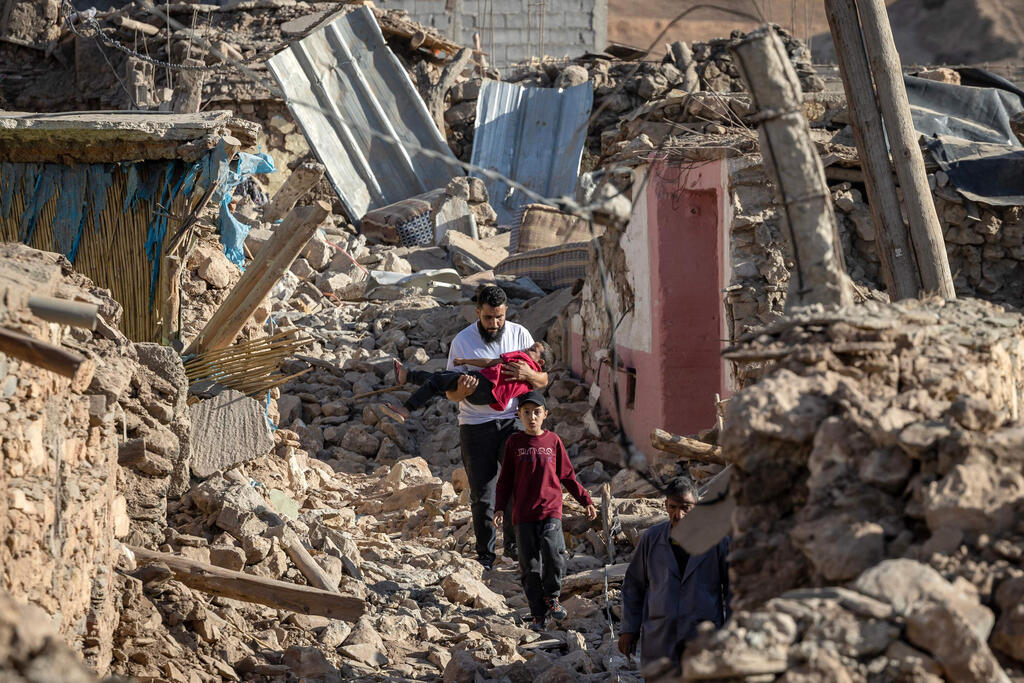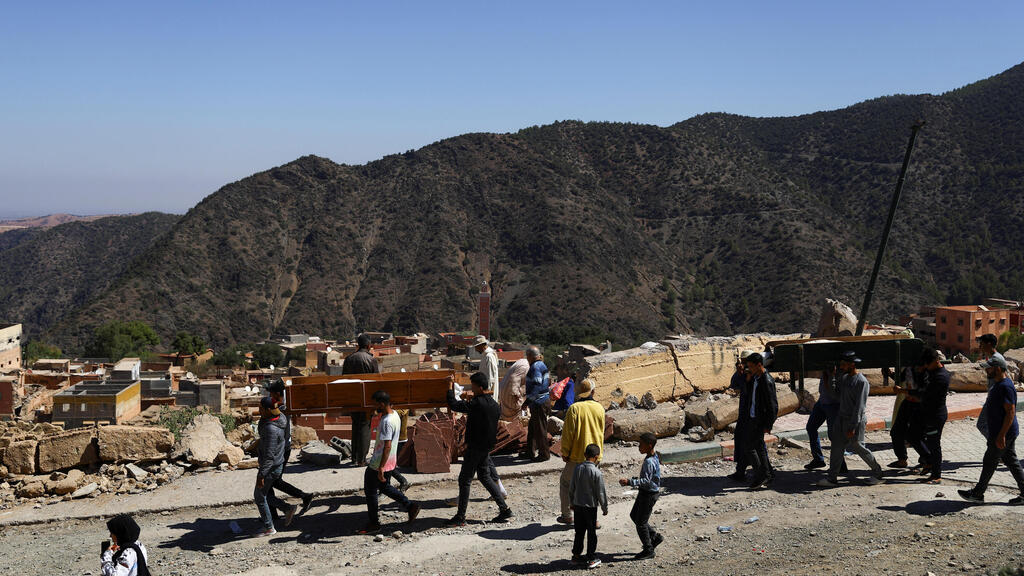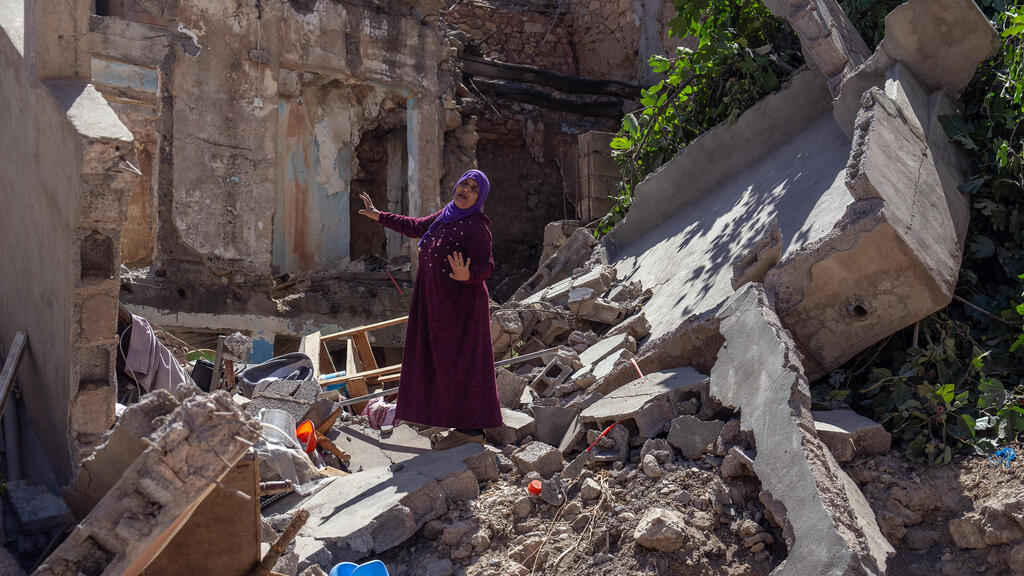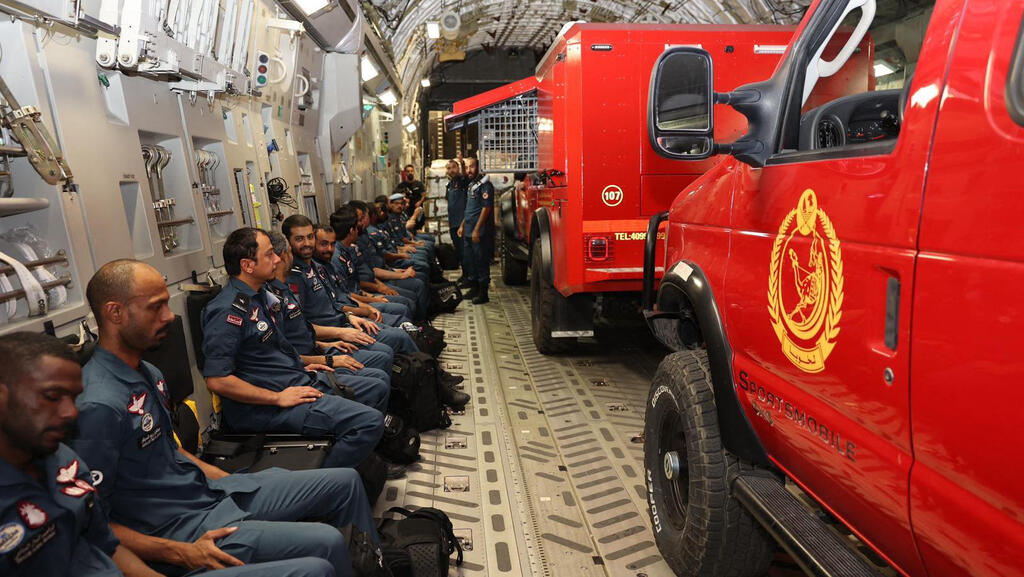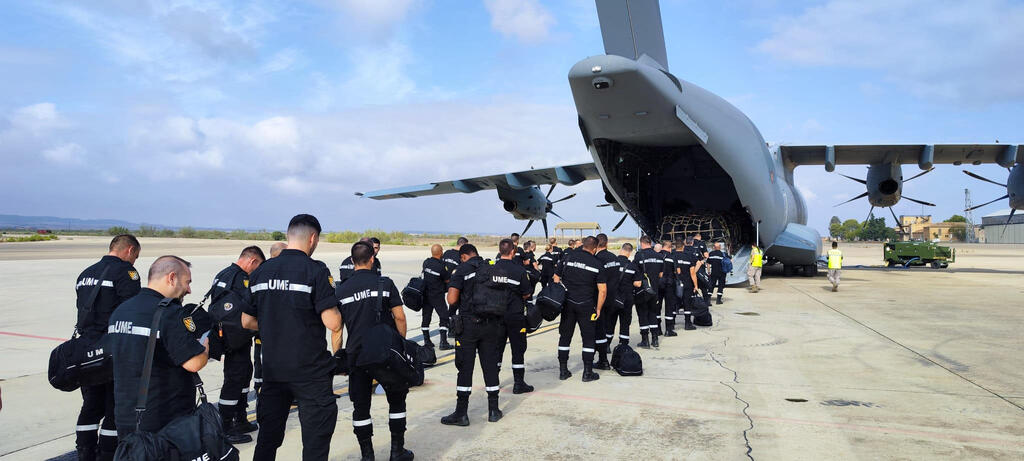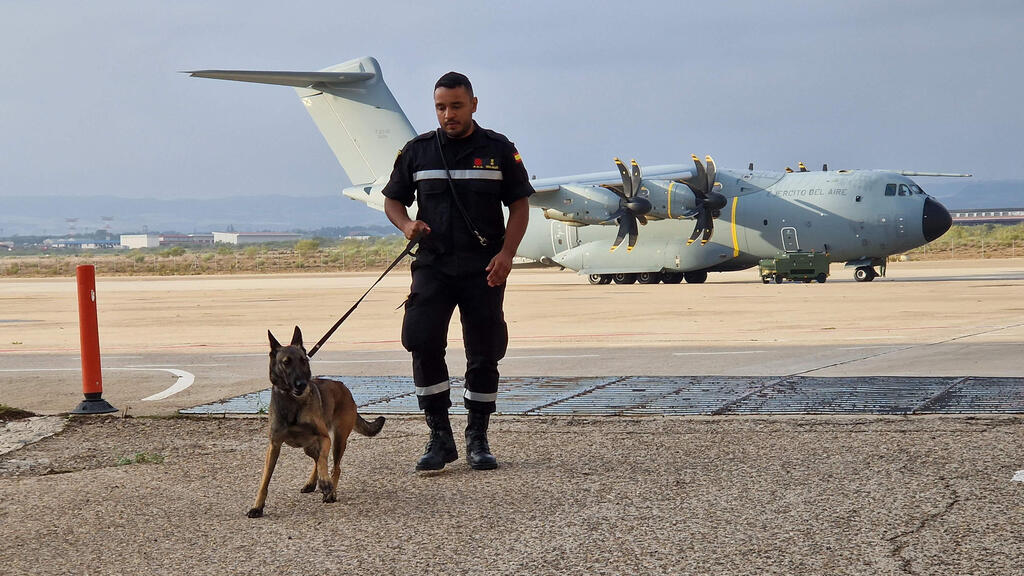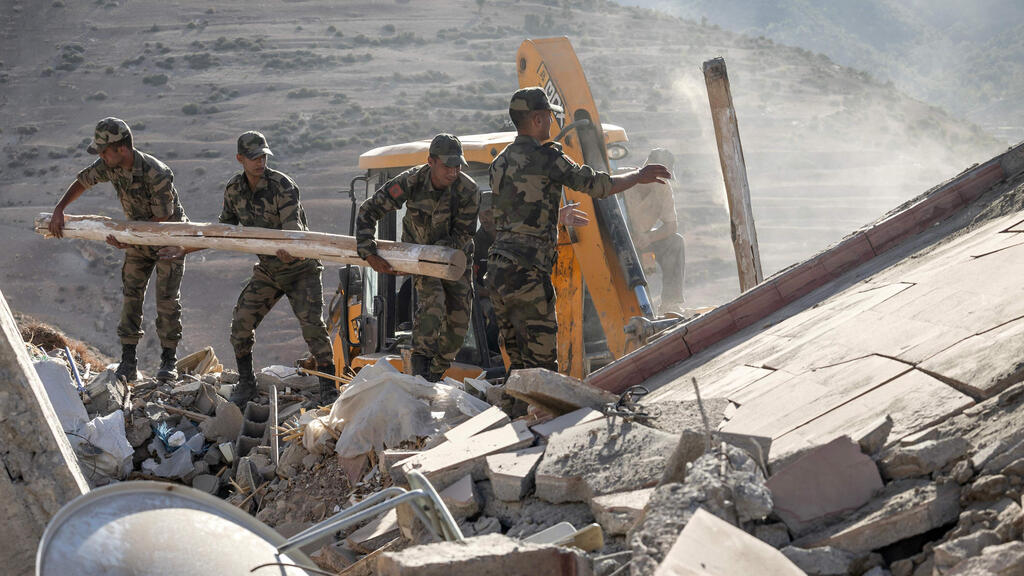Getting your Trinity Audio player ready...
Aerial view of the destruction in Moroccan villages
(Video: Reuters)
In Morocco, the race against time continues in hopes of rescuing residents who were trapped beneath the rubble in villages around the border region near Marrakesh. These are the areas that bore the brunt of the powerful earthquake that struck there on the night between Friday and Saturday, and according to reports, some of these villages have been nearly wiped out.
Read more:
On Sunday evening, after many hours with no updates, authorities in the North African nation announced that the death toll in the disaster had risen to 2,122, with another 2,421 injured.
Access to many of the mountainous villages in the region, which were already vulnerable even before the earthquake, has been blocked by rockslides. Emergency teams and soldiers deployed by the Moroccan army are working tirelessly to clear obstacles from the roads, ensuring the delivery of water, food, tents, and essential supplies to the victims and residents who have lost everything.
Television broadcasts by Moroccan Royal Television show helicopters landing in these isolated villages, but without professional rescue teams and heavy machinery, many residents have had to rely on primitive means to rescue those trapped, often using their bare hands.
Experts explain that the critical 72 hours following a devastating earthquake are often referred to as the "golden hours" because it's during this time that we can witness miracles in the efforts to locate survivors, according to Joe English, a senior member of the United Nations Children's Fund (UNICEF). "We call them the 'golden hours' because if you are going to be able to get under the rubble, sometimes we can see miracles," English told CNN
Mohammed, 50, who lost four members of his family in the disaster and his home in the village of Ouirgane, also told CNN that residents are hoping for such miracles. He said, "We are outside with the authorities trying to retrieve the dead from the rubble. We are hoping for a miracle within the wreckage."
Caroline Holt, a senior figure in the Red Cross, emphasized that rescue personnel are themselves in grave danger and are working in "an extremely hazardous environment" due to the risk of buildings collapsing further from the tremors.
Amid ongoing rescue efforts in the area, at around 9 a.m. local time, another significant tremor with a magnitude of 3.9 struck. Although no additional damage was reported, it was forceful enough to sow panic among the residents who already fear that the homes that remain standing have become unstable and could collapse at any moment. This fear has driven crowds in Marrakech and surrounding settlements to spend three consecutive nights sleeping in the streets and squares.
In the village of Moulay Brahim, which is home to approximately 3,000 residents and situated about 40 kilometers south of Marrakesh, the earthquake inflicted severe damage. Survivors recounted that they resorted to digging with their own hands to extract bodies from the rubble. Yassin Numgar, a 36-year-old resident, expressed frustration, saying, "We lost our homes and our people, and we have been sleeping outside for two days. We just want the government to help us."
Subsequently, it was reported that one of the main roads in the area has reopened to traffic, and trucks carrying food sent by the authorities with the assistance of civil organizations have arrived in the village.
Israel believes Morocco is not interested in an aid delegation
Countries around the world are currently mobilizing to aid Morocco in the wake of the devastating earthquake. Spain, Qatar, and Britain were among the first nations to dispatch assistance teams, while others, including Israel, the United States, and France, have expressed their readiness to send relief missions pending an official request from the Moroccan government in Rabat.
11 View gallery
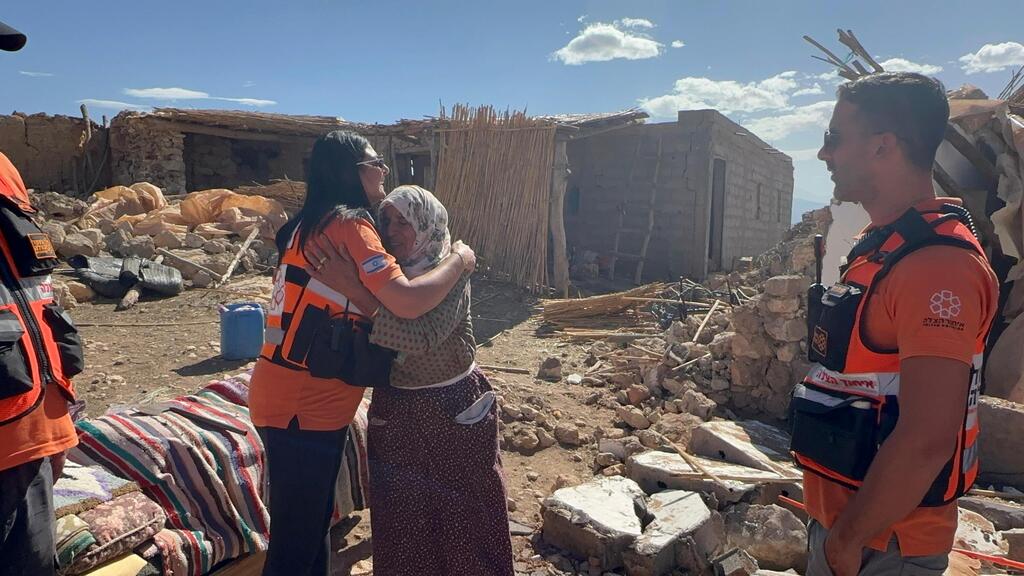

United Hatzalah volunteers meet villagers in the region of Tizi Ouaddou of Morocco
(Photo: Screenshot United Hatztalah on X)
The Israel-based United Hatzalah organization sent a team to Morocco early on Sunday morning to work with local agencies and assess the medical and humanitarian aid needs in preparation for a larger team to arrive in the coming days. On Sunday, the team left Marrakesh to travel to the mountain villages in the region of Tizi Ouaddou where rescue teams haven't reached yet.
"They found devastation but also a lot of resilient and strong people," the organization said in a post on the social media platfrom X.
Spain swiftly sent two rescue teams, totaling 86 personnel and eight search dogs, to provide vital support. Britain also deployed a team of approximately 60 rescuers accompanied by four rescue dogs. Qatar, in addition to its rescue team, provided specialized vehicles and supplies to aid in the relief efforts.
Algeria, Morocco's neighbor and former rival with whom diplomatic ties were severed two years ago, announced its willingness to open its airspace to aid flights and offered assistance of its own. However, Algeria has yet to receive a response from Morocco.
Israel is awaiting formal approval from Morocco before dispatching its aid mission. On Sunday, Israel received an official letter from the Rabat government acknowledging the offer but indicating that they are still considering it. The prevailing assessment in Israel is that Morocco might not be interested in receiving aid directly from the Jewish State. This hesitation, however, is not driven by concerns about how it would be perceived in the Arab world or the possibility of Israeli troops operating on Moroccan soil. Instead, it likely stems from the lessons learned following Morocco's 2004 earthquake when a massive influx of international relief missions caused significant chaos. Moroccan authorities seem to have opted to limit the number of incoming missions this time.
This assessment is supported by the fact that not only Israel but also the United States, France and several other countries have not yet dispatched their aid missions. Even if Israel doesn't ultimately send an official Home Front Command delegation, there is still a possibility that Israelis may participate as part of other organizations' missions.
In the meantime, Jerusalem is expressing solidarity with Morocco, with the city illuminating the Strings Bridge in the colors of the Moroccan flag. "Morocco is a true friend of the State of Israel, the Jewish people, and the city of Jerusalem. We will assist in any way possible for the Moroccan people and its government," according to a statement from city officials.
In France, as well, they are waiting for Morocco's request for assistance. "The moment they ask for this assistance, we will send it," President Emmanuel Macron said. Many French citizens are either immigrants from Morocco or descendants of Moroccan immigrants, and the country has already contributed over two million euros in aid to Morocco. King Mohammed VI of Morocco has ordered the establishment of special bank accounts to facilitate the easy transfer of donations from around the world.





